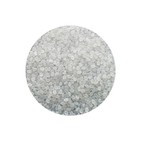Polypropylene, a versatile and sustainable material, is gaining popularity in various industries for its exceptional properties and eco-friendly characteristics. From packaging to automotive and medical applications, polypropylene has become a go-to choice for manufacturers looking to create high-quality products with a minimal environmental impact.
What is Polypropylene?
Polypropylene, commonly known as PP, is a thermoplastic polymer used in a wide range of applications due to its high performance and cost-effectiveness. It is a lightweight, durable, and flexible material that can be easily molded into different shapes and sizes. Polypropylene is also resistant to chemical solvents, acids, and bases, making it a suitable choice for packaging, containers, and other products that require such properties.
The Advantages of Polypropylene
1. Lightweight and Durable: Polypropylene is one of the lightest thermoplastics available, making it ideal for applications where weight is a concern. Despite its lightweight nature, polypropylene is also incredibly durable and can withstand harsh conditions without losing its structural integrity.
2. Recyclable and Sustainable: Polypropylene is fully recyclable and can be reused multiple times without losing its quality. By choosing polypropylene products, manufacturers can reduce their environmental impact and contribute to a more sustainable future.
3. Versatile and Flexible: Polypropylene can be easily molded into different shapes and sizes, making it a versatile material for various applications. From food packaging to automotive parts, polypropylene can adapt to different requirements and deliver high-performance results.
4. Chemical and Heat Resistant: Polypropylene is resistant to chemicals, heat, and moisture, making it a suitable choice for products that need to withstand harsh environments. Its ability to maintain its properties under extreme conditions makes polypropylene an excellent material for medical, automotive, and industrial applications.
Applications of Polypropylene
1. Packaging: Polypropylene's lightweight and durable nature make it an ideal choice for packaging materials such as bags, bottles, and containers. Its resistance to moisture and chemicals ensures that products remain safe and secure during transport and storage.
2. Automotive: Polypropylene is widely used in the automotive industry for interior and exterior parts due to its resistance to heat, chemicals, and impact. From bumpers to door panels, polypropylene components help improve the safety and performance of vehicles while reducing their overall weight.
3. Medical: Polypropylene is a preferred material for medical devices, instruments, and packaging due to its biocompatibility and sterilization properties. Its ability to withstand high temperatures and chemical exposure makes polypropylene a reliable choice for medical applications.
4. Home and Lifestyle: Polypropylene is used in various household products such as furniture, textiles, and appliances due to its lightweight, durable, and cost-effective nature. Its versatility allows manufacturers to create innovative and sustainable solutions for everyday use.
Conclusion
Polypropylene is a versatile and sustainable material that offers numerous advantages for manufacturers across different industries. Its lightweight, durable, and recyclable properties make polypropylene a reliable choice for packaging, automotive, medical, and home applications. By choosing polypropylene products, companies can reduce their environmental impact and contribute to a more sustainable future. With its exceptional properties and eco-friendly characteristics, polypropylene continues to play a vital role in shaping the future of manufacturing and innovation.




